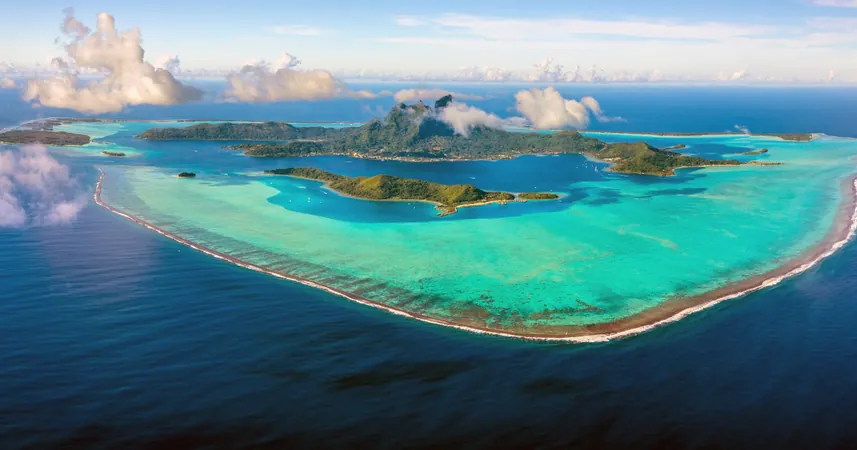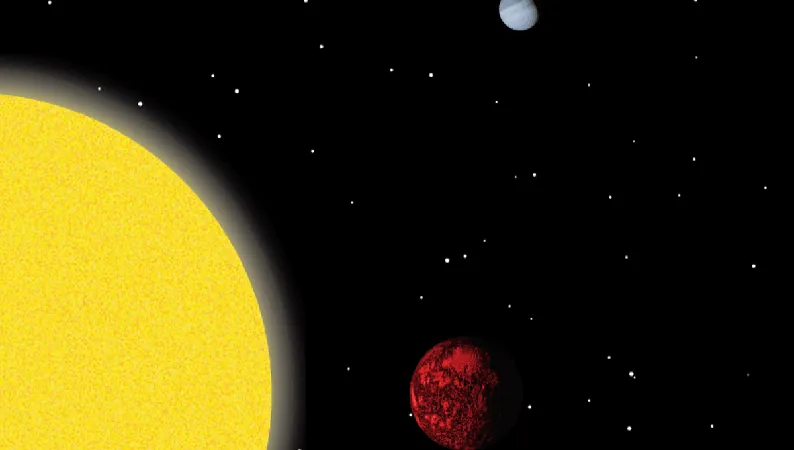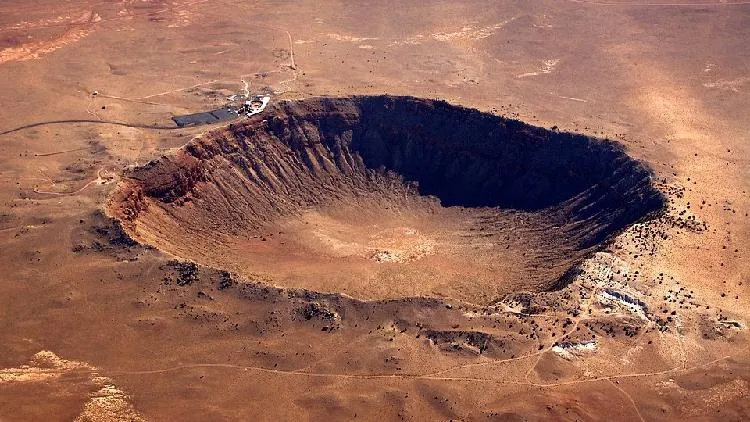
Groundbreaking Research Suggests Life May Have Originated from Volcanic Island Rocks!
2024-11-24
Author: Emma
Groundbreaking Research Suggests Life May Have Originated from Volcanic Island Rocks!
The quest to understand the origins of life on Earth has captivated scientists and philosophers alike for centuries. As researchers delve deeper into this enigma, new theories and discoveries continue to emerge, opening exciting avenues for exploration both on our planet and beyond. Could it be that life itself started in the unassuming porous rocks of volcanic islands?
Historically, two primary theories have dominated the conversation: one suggests that life began in warm ponds rich in amino acids—potentially delivered by meteorites—while another posits that RNA formed near the nutrient-rich hydrothermal vents on the ocean floor. The latter theory is particularly compelling due to the warmer temperatures and essential nutrients available in these extreme environments.
Enter Philipp Schwintek, a forward-thinking PhD student from Ludwig-Maximilians-Universität. His recent paper introduces a fascinating twist to the origin debate, proposing that volcanic islands may have offered the perfect cradle for the birth of RNA and, consequently, life itself. His groundbreaking hypothesis highlights the unique geological conditions present in these environments, which he believes could foster RNA formation and replication.
In his research, Schwintek emphasizes that volcanic islands, with their porous rocks, would provide the ideal setting for RNA synthesis. The fluctuations in temperature alongside abundant nutrients create a dynamic environment ripe for biochemical reactions. In his own words, he stated, “We investigated a simple and ubiquitous geological scenario where water movement through a rock pore was dried by a gas percolating through the rock to reach the surface. Such a setting would be very common on volcanic islands on early Earth, which offered the necessary dry conditions for RNA synthesis.”
To support this innovative theory, Schwintek and his team conducted a series of experiments. Their findings suggested that continuous evaporation at the rock-water interface leads to an accumulation of nucleic acids, which could facilitate the formation of complex life. They found that this circular fluid flow, driven by gas flux, played a crucial role in separating the strands of nucleic acids, allowing for the potential emergence of life.
While Schwintek’s research does not definitively prove that life began in volcanic settings, it undoubtedly offers compelling insights that merit further investigation. The notion that life could have its roots in the unique geology of volcanic islands opens thrilling new avenues for astrobiologists searching for life elsewhere in the cosmos.
Available in the preprint format on eLife, Schwintek's research raises an exhilarating question: Could our own beginnings as a species be tied to the fiery, dynamic landscapes of volcanic islands? The hunt for life’s origin continues, with every new discovery edging us closer to the profound truth of how we came to be.









 Brasil (PT)
Brasil (PT)
 Canada (EN)
Canada (EN)
 Chile (ES)
Chile (ES)
 España (ES)
España (ES)
 France (FR)
France (FR)
 Hong Kong (EN)
Hong Kong (EN)
 Italia (IT)
Italia (IT)
 日本 (JA)
日本 (JA)
 Magyarország (HU)
Magyarország (HU)
 Norge (NO)
Norge (NO)
 Polska (PL)
Polska (PL)
 Schweiz (DE)
Schweiz (DE)
 Singapore (EN)
Singapore (EN)
 Sverige (SV)
Sverige (SV)
 Suomi (FI)
Suomi (FI)
 Türkiye (TR)
Türkiye (TR)